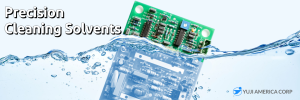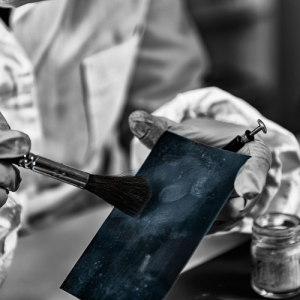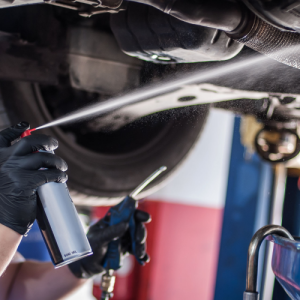Request A Quote
Our business is most valuable when it helps our customers. Please fill out the form with as much detail as possible so we can respond with the most helpful solution.

Yuji supplies Novec equivalents and next generation solvents for precision cleaning. Featuring high material compatibility, excellent cleaning performance, and low environmental impact for electronic precision parts manufacturers.
In order to reach a certain level of cleanliness, precision cleaning removes contaminants including dust, filth, fibers, grease, oil, and other minute impurities utilizing equipment of various cleaning processes. Precision of cleaning typically depends on a number of variables, such as the design and make-up of the materials that need to be cleaned, the kind and quantity of contaminants present, the level of cleanliness that the business demands. In order to achieve this, different precision cleaning methods can be employed;
Solvent cleaning agents are used to get rid of impurities such solder flux, grease, and other types of oil. These contaminants are eliminated from parts, electronic parts, products, tools, machinery, equipment, vessels, floors, walls, and other production-related work spaces for a variety of reasons, including safety, operability, and to prevent contamination in their product development. Often, the cleaning solvents utilized in these activities are not only used for cleaning but also for other purposes
Several industries utilize solvents for cleaning or material processing:
|
|
Utilized in the assembly of electrical and electronic parts such as printed circuit boards to remove solder flux, grease, oil, residual dust that may reside following |
 Aerospace Aerospace |
Solvents may be used to clean aviation parts and components such as system controls, turbine blades, engine parts, and even landing gear such as brake assemblies and wheels. |
|
Solvents may be used to clean optical devices such as microscopes, telescopes, light detection devices, and fiber optic glass. |
 Forensics Forensics |
Solvents may be used in the forensics industry in mixed solutions for fingerprint development on porous surfaces at crime scenes or in laboratories. |
|
Solvents may be used in the metal fabrication industry to remove contaminants from materials such as steel, brass, aluminum, and copper. |
 Medical Device Medical Device |
Solvents may be used in the medical equipment manufacturing process to clean medical instruments, monitoring and information systems that are attached to the body, and also implants. |
 Automotive Automotive |
Solvents may be used in the automotive parts manufacturing process to remove greases and oils. It may also be used further down the production line as a thinner or cleaner for lacquer and certain coatings. |
To clean a surface, a solvent must first dissolve the soil, break it up into smaller particles, and then moves those smaller particles into the solution and away from the surface. Many solvents have the benefit of fast cleaning, allowing dirt to dissolve and run off of the substrate with minimal preparation, processing, or drying time.
Because to their cleaning prowess solvent-based cleaners continue to be widely used in industrial settings because they can get rid of thick, baked-on oils, grime, containments, solder flux, and greases. Strong cleaning agents include acetone, methyl ethyl ketone, toluene, nPB, and trichloroethylene (TCE), to name a few. Hydrofluoroether cleaning solvents are widely used by many industries due to its environmentally-friendly properties. HFE solvents feature an ozone depleting potential of zero, short atmospheric lifetime, and low greenhouse effect index. Due to these excellent properties, HFE has been used as a direct replacement for trichloroethylene (TCE), perchloroethylene (PERC), 1,1,1-trichloroethane, HCFC-141b, Freon, and other hazardous or discontinued vapor degreasing, ultrasonic and manual cleaning solvents.
• HFO & Solvent Cleaning Agents • Fluorine Chemistry •Hydrofluoroolefin (HFO) as HFC Alternatives
Previous Energy & Battery
Our business is most valuable when it helps our customers. Please fill out the form with as much detail as possible so we can respond with the most helpful solution.